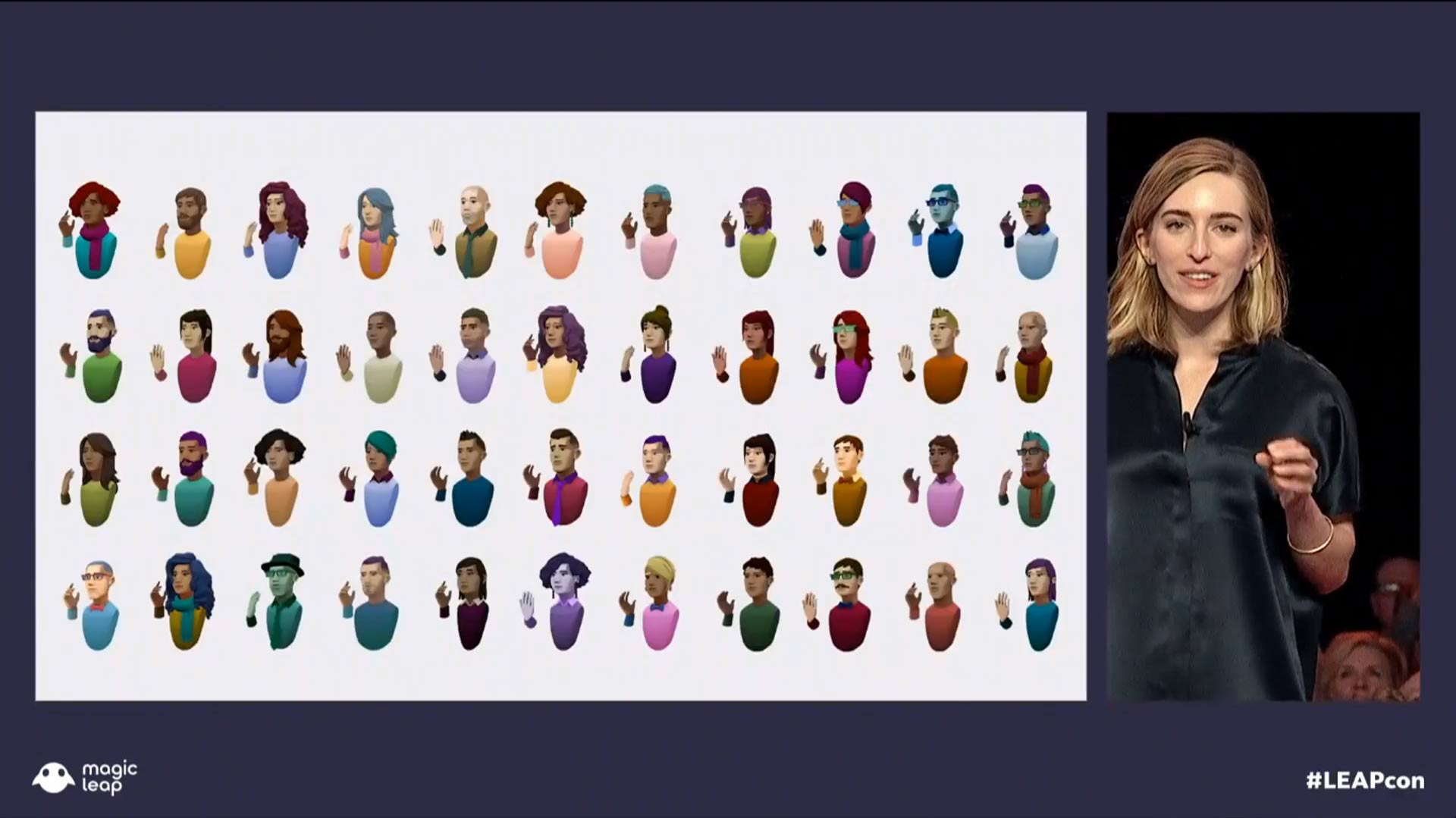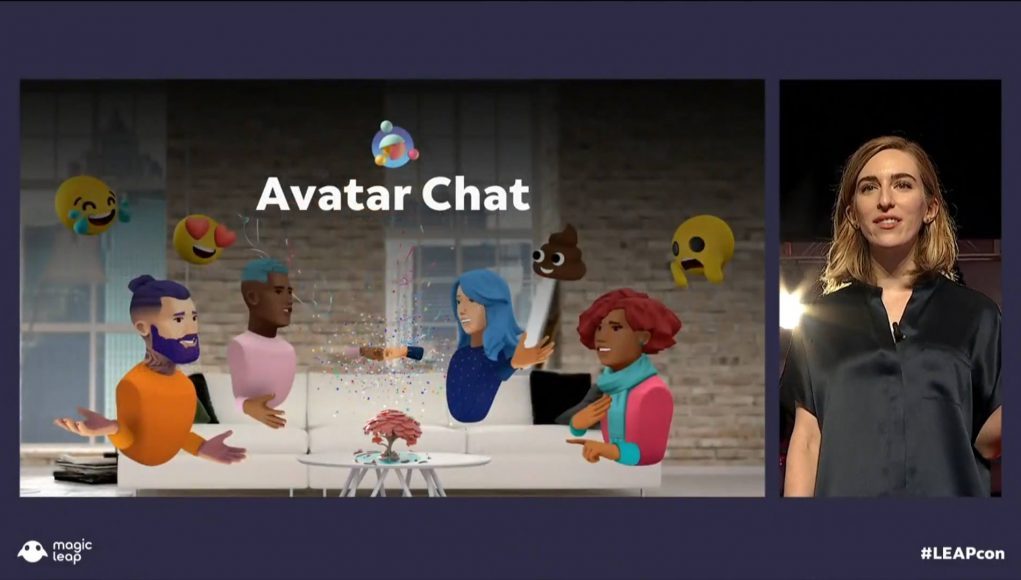Magic Leap is slowly broadening its app offerings, and as a part of the company’s next steps to move forward to a fully-fledged consumer product, the company today announced at L.E.A.P. Con, the company’s first developer conference, that Magic Leap One is getting a bit more social in the next few months.
Savannah Niles, Magic Leap’s Designer Lead of User Experience, took the stage today at L.E.A.P. Con to announce that the company will be rolling out “a suite of products” to enable multiuser experiences on Magic Leap One—something that’s been missing up until now.
The opening gambit: Avatar Chat, an AR chat app that allows multiple users to connect remotely, with the ability to be represented by customizable avatars.

In the quick clip of Avatar Chat, we saw Magic Leap One detecting gestures, eye blinks, and the ability to manually select emotions, represented by emojis.
Magic Leap says they’ll allow a much broader customization option later this year, and tool in the next few weeks that will allow developers to create their own avatars from the ground-up. Apps including the Gallery and the headset’s web browser, Helio, will also be shareable via something the company calls ‘casting’.
Over the fall, Magic Leap will also provide the APIs necessary for developers to create their own multiuser games and apps.
Many of the Magic Leap One apps announced recently are presumably singe-player only, meaning the company is clearly still in its early stages of releasing multiplayer apps and games. The release of Avatar Chat and the multiuser APIs represents a step forward for the company, because as we know well from virtual reality, that the human element is always additive to experiences.
We have feet on the ground at L.E.A.P. Con in Los Angeles, so check back soon for more Magic Leap news.







